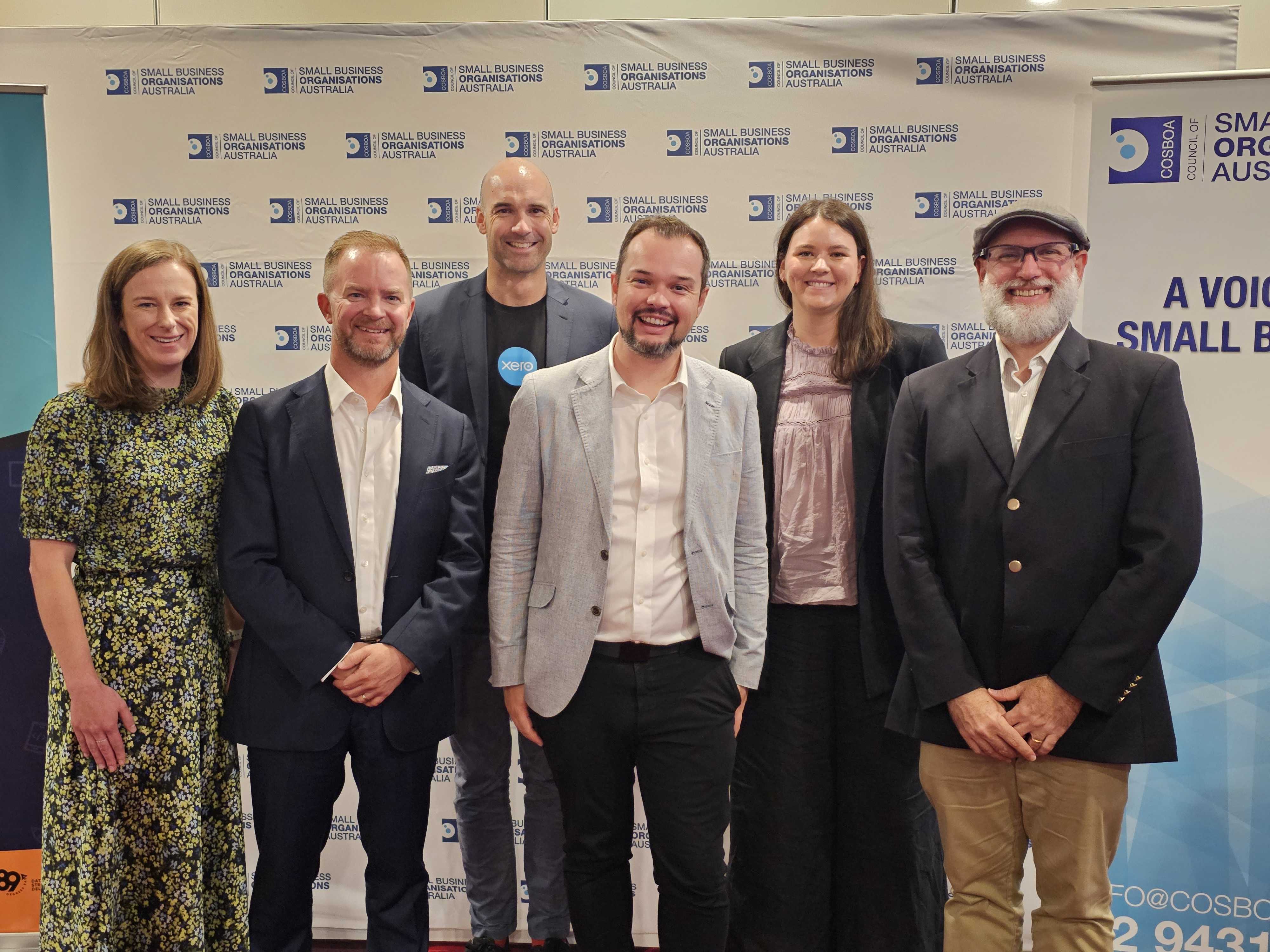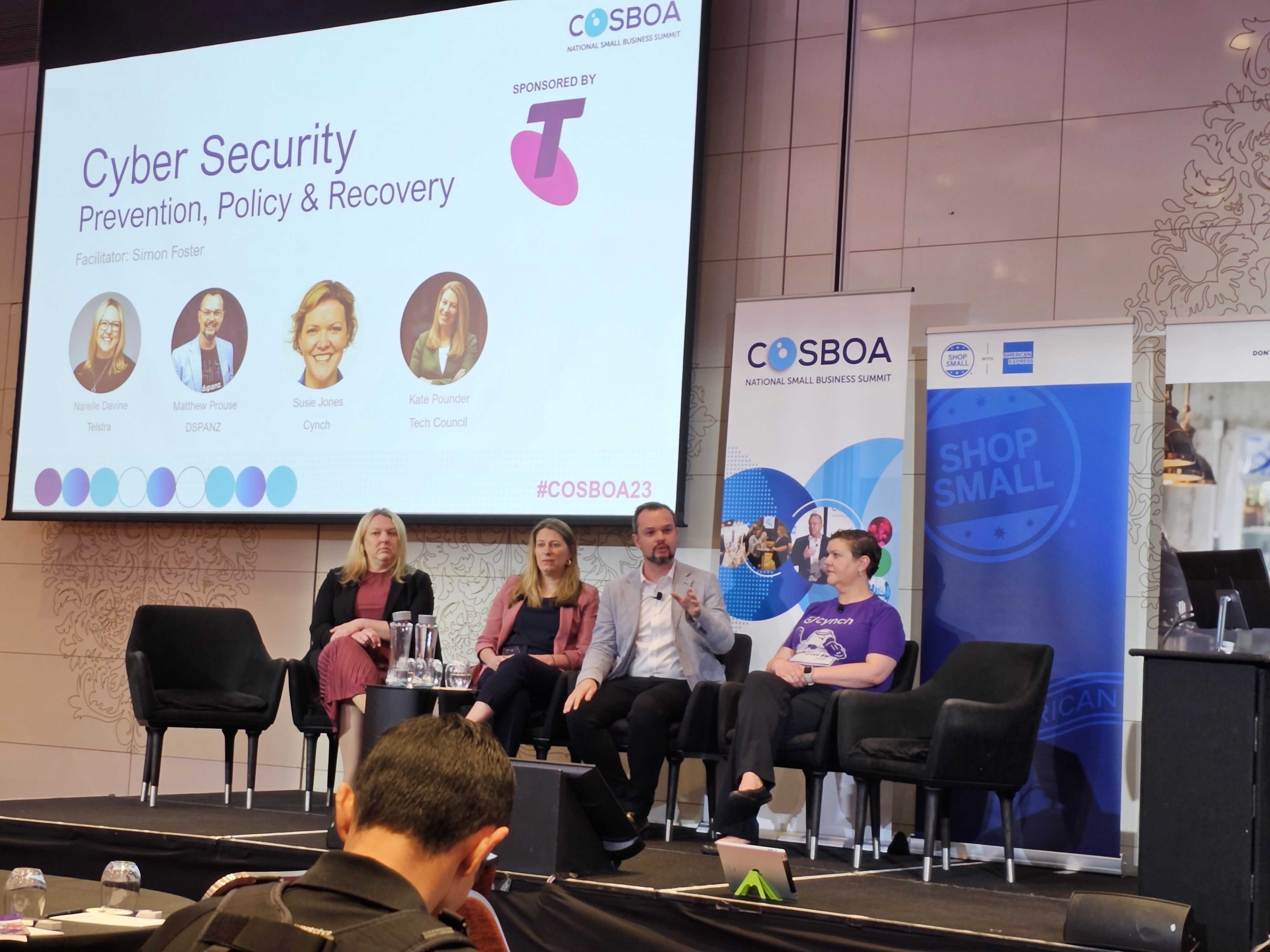DSPANZ members and directors attended the 2023 COSBOA National Small Business Summit in Melbourne earlier in April.
The summit was an excellent opportunity to connect with our industry and government peers while reflecting on how our organisations can support thriving small businesses. We heard from esteemed speakers throughout the summit, including Minister for Small Business, the Hon. Julie Collins MP; Leader of the Opposition, the Hon. Peter Dutton MP; Assistant Minister for Competition, Charities and Treasury, the Hon. Dr Andrew Leigh; and the Australian Small Business and Family Enterprise Ombudsman, Bruce Billson.
DSPANZ President Matthew Prouse and Communications and Policy Manager, Maggie Leese were joined by members of the DSPANZ
Government Relations Committee
for two days of policy discussions, networking and conversations.

L-R: Erin Adams, Simeon Duncan, Angus Capel, Matthew Prouse,
Maggie Leese and Simon Foster.
Here are our three key takeaways from the summit:
1. Recommendations from the digital platforms inquiry
ACCC Chair, Gina Cass-Gottlieb, presented the recommendations from the Digital Platforms Inquiry's fifth report. These recommendations included verifying business users, mandatory principles-based codes of conduct targeted at anti-competitive self-preferencing behaviour and removing barriers to entry.
While this review has typically focused on big tech platforms such as Apple and Google, several DSPs operate app marketplaces, and
we're waiting to see whether there are any impacts for these DSPs. So we'll continue to watch the progress of the inquiry closely.
2. First set of users testing the new ABS survey tool in their accounting software
John Shepherd from the Australian Bureau of Statistics provided an update on their small business survey project. The ABS Business Reporting app is now being tested by Xero users, with MYOB and Inuit users to follow throughout the year.
While this project will help reduce the reporting burden for small businesses, it's also the first time an Australian government
agency has created an application that consumes DSP APIs rather than several DSPs building to a new government API.
3. Rethinking how we deliver cybersecurity information for small businesses
We should recognise where the current information and materials around cyber security for small businesses miss the mark. Small businesses often do not have the time or expertise to trawl through the cyber.gov.au website and find the guidance or solution they're looking for. The Essential Eight is another example where it can be difficult for small businesses to understand and implement.
While trusted advisors - particularly accountants and bookkeepers - have typically been utilised as an avenue to reach small businesses on cyber security, among other topics, there is a limit to how much we can expect trusted advisors to provide in their services to small businesses without support.
 L-R:
Narelle Devine (Telstra), Kate Pounder (Technology Council of Australia),
L-R:
Narelle Devine (Telstra), Kate Pounder (Technology Council of Australia),
Matthew Prouse (DSPANZ) and Susie Jones (Cynch).
Government needs to rethink how it develops and delivers cyber security information catered to small businesses while support meaningful incentives to help them find the assistance they need. There are examples in the region that have baked cyber fitness measures into digitalisation initiatives, and a number of new providers have entered the market, specifically to support small businesses.
DSPANZ recommends that small businesses and industry associations participate in the Cyber Wardens program. Find more information on that here.


